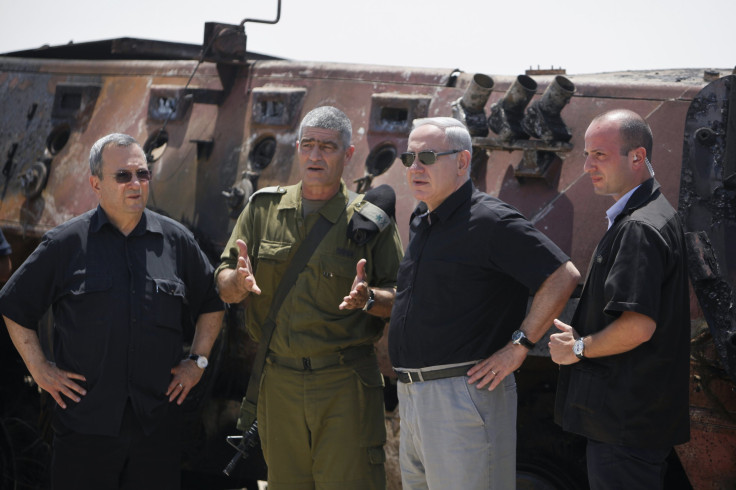Israel Silent On Morsi’s Ouster In Egypt; Officials Express Concerns In Private

While several U.S. allies in the Middle East, including Saudi Arabia, the United Arab Emirates and Bahrain, openly expressed happiness about the ouster of the Muslim Brotherhood-backed former Egyptian President Mohamed Morsi, Israel was unusually quiet on Thursday, after Prime Minister Benjamin Netanyahu instructed his ministers not to comment on the crisis.
Israel is intricately connected to the state of affairs in Egypt, which signed a peace deal with the Jewish state in 1979, ending 30 years of war. Israel shares a long border in the south with Egypt, which also borders the Gaza Strip controlled by the Palestinian movement, Hamas.
Israel’s transport minister, Yaakov Katz, who spoke to Israeli army radio about the crisis in Egypt, said: “We are not relating at the moment to what is going on over there. It is an internal Egyptian issue. We must look after our own borders and our own interests and that is what we are doing,” Agence France-Presse reported.
Another Israeli official, who spoke to AFP on the condition of anonymity, said the government was closely monitoring the situation in Egypt, but was not prepared to make any predictions.
“It is important that the Egyptian people can enjoy a new level of freedom and self-determination ... but the current situation has sent shock waves throughout the Arab world and it is causing some concern in Israel,” he told AFP.
Palestinian President Mahmoud Abbas, on Thursday, congratulated Adly Mansour, who was sworn in as Egypt’s interim president, and praised Egypt’s military for preserving security in the country.
Hamas, the militant Islamist organization of Palestine that rivals Abbas’ Fatah party, and is listed as a terrorist organization by Israel, the U.S. and the EU, said on Wednesday, that it did not “fear the fall of President Mohamed Morsi,” adding:
“We only care about stability in Egypt regardless of who is in charge. Egypt is a lifeline to us; it’s a major factor in the stability of the internal Palestinian situation -- it is our backbone,” Ma’an News Agency, operating in the West Bank and Gaza strip, reported.
The rise of the Muslim Brotherhood, an organization that had long been banned in Egypt during the reign of former U.S.-allied President Hosni Mubarak, and the installation of Morsi, who allegedly had anti-Zionist sympathies in the early years of his political career, had caused concern in Israel, as well as in the U.S., about a potential change in the dynamics between Israel, Egypt and the Palestinian Authority.
However, Morsi’s ouster continues to worry Israel, as prolonged political uncertainty in Egypt -- a nation of 80 million people and a key figure in Arab politics -- poses threats of increased chaos along the border and an economic collapse in the north African nation.
“There are those that think the boat is being rocked way beyond its capacity to stay afloat. It's not staying the course,” an Israeli official was quoted as saying by the Wall Street Journal. “The concern is instability in a big and influential neighboring country.”
The most important strategic implication for Israel, with regard to the crisis in Egypt, “involves the nature of ties between Cairo and Gaza,” Haaretz, an Israeli newspaper, said in a report.
“The ideological identification of the Muslim Brotherhood with Hamas has allowed Egypt to extend its patronage over Hamas and to bend Hamas to its policies. It is hard to know whether these ties will persist when the rulers in Cairo change,” Haaretz said.
Violence and smuggling in the Sinai Peninsula, which had increased during the period of political uncertainty in Egypt after Mubarak was toppled in February 2011, was brought under control during Morsi’s presidential term. Israel agreed to hand over the troubled peninsula, with which it shares a long border, to Egypt under the 1979 Camp David Accords, on the condition that Egypt restrict the number of troops operating there.
Political ties between Israel and Egypt saw occasional tensions during Morsi’s rule, but the military ties between the two countries marginally improved, according to senior Israeli military officials who spoke to Haaretz.
© Copyright IBTimes 2024. All rights reserved.





















